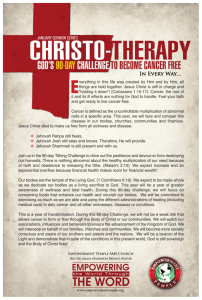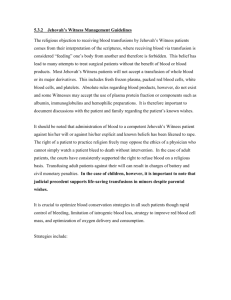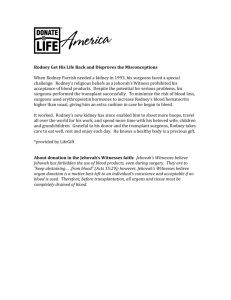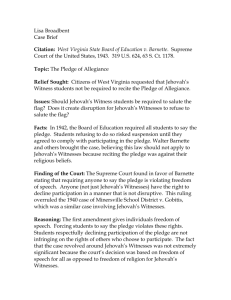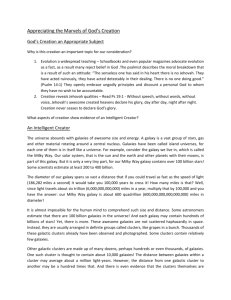Lieti di spenderci nel servizio di Geova
advertisement
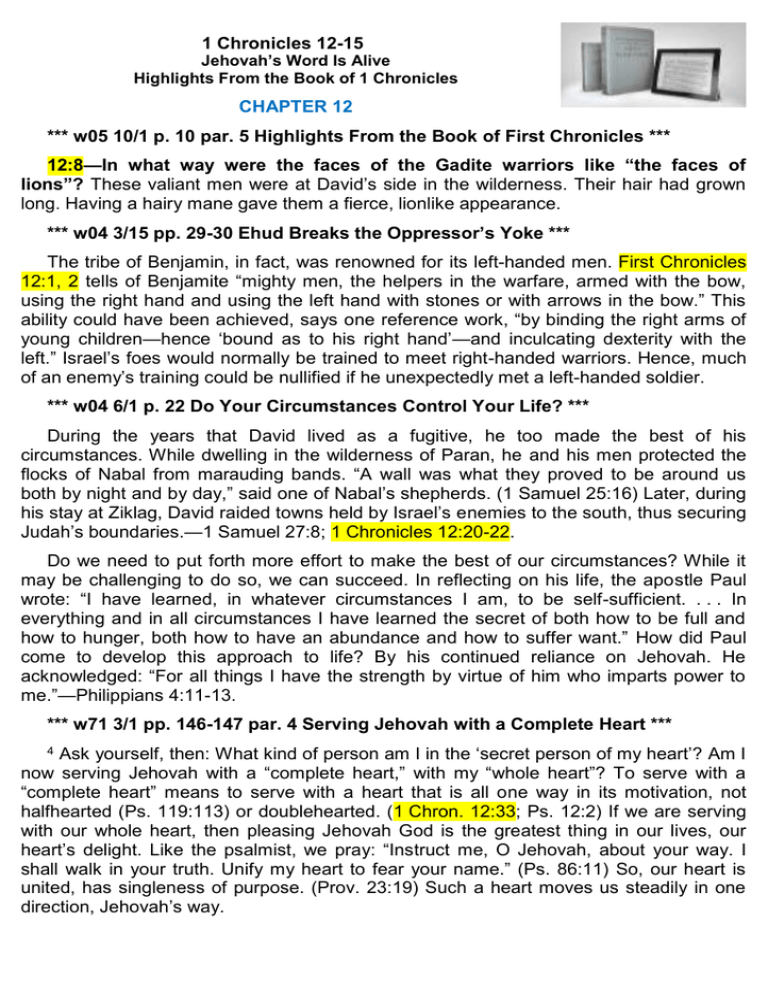
1 Chronicles 12-15 Jehovah’s Word Is Alive Highlights From the Book of 1 Chronicles CHAPTER 12 *** w05 10/1 p. 10 par. 5 Highlights From the Book of First Chronicles *** 12:8—In what way were the faces of the Gadite warriors like “the faces of lions”? These valiant men were at David’s side in the wilderness. Their hair had grown long. Having a hairy mane gave them a fierce, lionlike appearance. *** w04 3/15 pp. 29-30 Ehud Breaks the Oppressor’s Yoke *** The tribe of Benjamin, in fact, was renowned for its left-handed men. First Chronicles 12:1, 2 tells of Benjamite “mighty men, the helpers in the warfare, armed with the bow, using the right hand and using the left hand with stones or with arrows in the bow.” This ability could have been achieved, says one reference work, “by binding the right arms of young children—hence ‘bound as to his right hand’—and inculcating dexterity with the left.” Israel’s foes would normally be trained to meet right-handed warriors. Hence, much of an enemy’s training could be nullified if he unexpectedly met a left-handed soldier. *** w04 6/1 p. 22 Do Your Circumstances Control Your Life? *** During the years that David lived as a fugitive, he too made the best of his circumstances. While dwelling in the wilderness of Paran, he and his men protected the flocks of Nabal from marauding bands. “A wall was what they proved to be around us both by night and by day,” said one of Nabal’s shepherds. (1 Samuel 25:16) Later, during his stay at Ziklag, David raided towns held by Israel’s enemies to the south, thus securing Judah’s boundaries.—1 Samuel 27:8; 1 Chronicles 12:20-22. Do we need to put forth more effort to make the best of our circumstances? While it may be challenging to do so, we can succeed. In reflecting on his life, the apostle Paul wrote: “I have learned, in whatever circumstances I am, to be self-sufficient. . . . In everything and in all circumstances I have learned the secret of both how to be full and how to hunger, both how to have an abundance and how to suffer want.” How did Paul come to develop this approach to life? By his continued reliance on Jehovah. He acknowledged: “For all things I have the strength by virtue of him who imparts power to me.”—Philippians 4:11-13. *** w71 3/1 pp. 146-147 par. 4 Serving Jehovah with a Complete Heart *** 4 Ask yourself, then: What kind of person am I in the ‘secret person of my heart’? Am I now serving Jehovah with a “complete heart,” with my “whole heart”? To serve with a “complete heart” means to serve with a heart that is all one way in its motivation, not halfhearted (Ps. 119:113) or doublehearted. (1 Chron. 12:33; Ps. 12:2) If we are serving with our whole heart, then pleasing Jehovah God is the greatest thing in our lives, our heart’s delight. Like the psalmist, we pray: “Instruct me, O Jehovah, about your way. I shall walk in your truth. Unify my heart to fear your name.” (Ps. 86:11) So, our heart is united, has singleness of purpose. (Prov. 23:19) Such a heart moves us steadily in one direction, Jehovah’s way. *** w83 3/1 p. 18 pars. 7-9 “Flocking Together in Battle Line” *** 7 Evidently some Israelites decided in favor of the condemned house of Saul. Others decided on the basis of personal expediency. Still others remained indecisive. But sooner or later the choice had to be made, and happy were those who wholeheartedly chose to support David’s kingship! These were not selfish or taking the course of least resistance. They were not double-minded. Rather, their support for Jehovah’s king led them to adopt an active role as David’s subjects and soldiers. As 1 Chronicles 12:22 reports: “Day by day people kept coming to David to help him, until it was as a great camp, like the camp of God.” 8 From the details of the record we note that among these multitudes were those “having a knowledge of how to discern the times to know what Israel ought to do.” (1 Chronicles 12:32) These were not lukewarm in their allegiance to the king. They were well armed so as to present themselves as ready to accept David’s lead in warfare. They did not expect an easy life. They ‘discerned the times’ and knew that the kingdom was surrounded by enemies that were ready to swallow up Israel and blot out the worship of Jehovah. Those from east of the Jordan River were “men of war, flocking together in battle line” and ready to serve under David with a “complete heart.”—1 Chronicles 12:38. 9 How thrilling it now is to observe unfolding before our very eyes a modern-day antitype of that situation! The Greater David, Christ Jesus, has been chosen by Jehovah and is now ruling as heavenly King. Worldly nations are opposed to his kingship. They threaten to wipe out the King’s subjects on earth. (Psalm 2:1-3) Therefore, individuals worldwide are being called upon to take their stand on one side of the issue or the other. That issue is: Are they for the Kingdom of Jehovah’s Son or against it? Multitudes are indecisive. Others determine their position merely by what is expedient, only selfishly considering their own personal safety and gain.—Zephaniah 2:2, 3; Joel 3:14. *** g92 6/8 p. 26 Left-Handedness—Disadvantage or Advantage? *** Later, warriors who were able to use both the left and the right hand are mentioned as serving in the armies of King David. (1 Chronicles 12:2) So anyone who shows prejudice toward those who are left-handed is acting out of ignorance. CHAPTER 13 *** w05 10/1 p. 10 par. 6 Highlights From the Book of First Chronicles *** 13:5—What is “the river of Egypt”? Some have thought that this expression refers to a branch of the Nile River. However, it is generally understood that the reference is to “the torrent valley of Egypt”—a long ravine marking the southwest boundary of the Promised Land.—Numbers 34:2, 5; Genesis 15:18. *** km 10/10 p. 3 Theocratic Ministry School Review *** What was wrong with David’s reaction described at 1 Chronicles 13:11? [w05 10/1 p. 11] 13:11. Rather than becoming angry and blaming Jehovah when our efforts fail, we must analyze the situation and try to see what caused the failure. Undoubtedly, David did that. He learned from his mistake and later successfully brought the Ark to Jerusalem, using the proper method. CHAPTER 14 *** w05 10/1 p. 11 par. 3 Highlights From the Book of First Chronicles *** 14:10, 13-16; 22:17-19. We should always approach Jehovah in prayer and seek his direction before undertaking any endeavor that will affect us spiritually. *** km 4/01 p. 5 Theocratic Ministry School Review *** Why was the account at 1 Chronicles 14:8-17 of interest in Isaiah’s day, and why should it be of interest to Christendom today? (Isa. 28:21) [Weekly Bible reading; see w91 6/1 p. 21 pars. 2-3.] 2 This time he was told to go to the rear of the Philistines with his troops. Jehovah said: “When you hear the sound of a marching in the tops of the baca bushes, at that time you act with decision, because at that time Jehovah will have gone out ahead of you to strike down the camp of the Philistines.” And that is what happened. David waited until Jehovah produced the sound of marching in the top of the baca bushes—perhaps by means of a strong wind. Immediately, David and his troops leapt out from concealment and attacked the distracted Philistines, defeating them with a great slaughter. The religious idols that the Philistines left lying on the battlefield were gathered together and destroyed.—2 Samuel 5:17-25; 1 Chronicles 14:8-17. 3 This was an unusual work, a strange deed, accomplished by Jehovah against the Philistines and in behalf of his anointed king. This remarkable deed is of particular interest because the prophet Isaiah warned that Jehovah would do something equally strange and powerful against the spiritual drunkards of Judah. Hence, the unfaithful religious leaders of Isaiah’s day needed to take note. Christendom today should also take note because what happened to Judah was a pattern for Christendom’s eventual fate. CHAPTER 15 *** w10 12/15 p. 21 pars. 4-6 Sing to Jehovah! *** 4 David himself composed many of the songs that the Levites performed. Any Israelites who were privileged to be present on the occasions when David’s psalms were sung must have been deeply moved by what they heard. Later, when the ark of the covenant was brought up to Jerusalem, “David . . . said to the chiefs of the Levites to station their brothers the singers with the instruments of song, stringed instruments and harps and cymbals, playing aloud to cause a sound of rejoicing to arise.”—1 Chron. 15:16. 5 Why was so much attention given to music in David’s day? Was it just because the king was a musician? No, there was another reason, which was revealed centuries later when righteous King Hezekiah revived the services at the temple. At 2 Chronicles 29:25, we read: “He [that is, Hezekiah] had the Levites stationed at the house of Jehovah, with cymbals, with stringed instruments and with harps, by the commandment of David and of Gad the king’s visionary and of Nathan the prophet, for it was by the hand of Jehovah that the commandment was by means of his prophets.” 6 Yes, through his prophets, Jehovah directed his worshippers to praise him with song. Singers from the priestly tribe were even exempted from duties that other Levites were required to perform so that they could devote sufficient time to composition and, most likely, to rehearsal.—1 Chron. 9:33. PUNTO SMT – Cosa trascuro di fare Davide quando tento di portare l’arca del patto a Gerusalemme, e quale importante insegnamento possiamo trarre da questo racconto? (1 Cron. 15:13). Ripasso della Scuola [26 ott., w03 1/5 pp. 10-11 parr. 11-13] 11 True worship involves more than symbolizing our dedication by water immersion, attending congregation meetings, and sharing in the public ministry. Our entire way of life is involved. Daily we are subjected to pressures—some subtle, some more obvious—that could turn us away from the path that is in accord with godly devotion. How will we react to these? When writing to faithful Christians in Ephesus, the apostle Paul urged them: “Keep on making sure of what is acceptable to the Lord.” (Ephesians 5:10) The wisdom of doing that is illustrated by many situations reported in the Scriptures. 12 After the ark of the covenant had been returned to Israel and had been kept for many years at Kiriath-jearim, King David desired to transfer it to Jerusalem. He consulted with chiefs of the people and said that the Ark would be moved ‘if it seemed good to them and it was acceptable with Jehovah.’ But he neglected to search adequately to ascertain Jehovah’s will on the matter. If he had done so, the Ark would never have been loaded onto a wagon. It would have been carried by Kohathite Levites on their shoulders, as God had clearly instructed. Though David frequently inquired of Jehovah, he failed to do so in a proper way on this occasion. The result was disastrous. David later acknowledged: “Jehovah our God broke through against us, for we did not search after him according to the custom.”—1 Chronicles 13:1-3; 15:11-13; Numbers 4:4-6, 15; 7:1-9. 13 When the Ark was finally transported by the Levites from the house of Obed-edom to Jerusalem, a song composed by David was sung. It included the heartfelt reminder: “Search after Jehovah and his strength, seek his face constantly. Remember his wonderful acts that he has performed, his miracles and the judicial decisions of his mouth.”—1 Chronicles 16:11, 12. What about us? Do we search for God but then refuse to accept counsel? When a concerned and caring elder uses the Bible to counsel us because we are getting entangled with the world, do we show appreciation for the loving help being given us to know “what is acceptable to the Lord”? *** w05 4/1 p. 27 Making Jehovah Your God *** When David was confronted with his sins, however, he accepted responsibility for them and did not shift the blame to others. He admitted that the transporting of the Ark had not been properly arranged, adding that “we did not search after [Jehovah] according to the custom.” When Nathan the prophet uncovered David’s adultery, David replied by saying: “I have sinned against Jehovah.” And once David became aware of the foolishness of counting the people, he admitted: “I have sinned very much in what I have done.” David repented of his sins and remained close to Jehovah.—1 Chronicles 15:13; 2 Samuel 12:13; 24:10. *** w06 6/15 p. 31 A Lesson About Pride and Humility *** AN INCIDENT in the life of King David highlights the difference between true humility and wicked pride. It happened after David had conquered Jerusalem and made it his capital city. David looked to Jehovah as the real King of Israel, so he arranged for the Ark, which symbolized God’s presence, to be brought into the city. This event was so important to David that he showed his joy for all to see as he followed the priests who carried the Ark. The inhabitants of Jerusalem saw their king “skipping about” and “dancing . . . with all his power.”—1 Chronicles 15:15, 16, 29; 2 Samuel 6:11-16. David’s wife Michal, however, did not join that joyful procession. She watched from a window, and rather than admiring David’s way of directing praise to Jehovah, she “began to despise him in her heart.” (2 Samuel 6:16). Since Jehovah is humble, it is no wonder that he hates the “lofty eyes” of proud people. (Proverbs 6:16, 17) For displaying this wicked trait and disrespecting the one God had chosen as king, Michal was denied the privilege of bearing a son to David. She died childless. What an important lesson for us! All who want God’s favor must follow these words: “Gird yourselves with lowliness of mind toward one another, because God opposes the haughty ones, but he gives undeserved kindness to the humble ones.”—1 Peter 5:5. *** w05 2/1 p. 26 par. 18 Jehovah Always Does What Is Right *** Another account that might seem puzzling to some involves David’s attempt to bring the ark of the covenant to Jerusalem. The Ark was placed on a wagon, which was led by Uzzah and his brother. The Bible states: “They came gradually as far as the threshing floor of Nacon, and Uzzah now thrust his hand out to the ark of the true God and grabbed hold of it, for the cattle nearly caused an upset. At that Jehovah’s anger blazed against Uzzah and the true God struck him down there for the irreverent act, so that he died there close by the ark of the true God.” Some months later, a second attempt succeeded when the Ark was transported in the God-appointed way, carried on the shoulders of Kohathite Levites. (2 Samuel 6:6, 7; Numbers 4:15; 7:9; 1 Chronicles 15:1-14) Some may ask: ‘Why did Jehovah react so strongly? Uzzah was only trying to save the Ark.’ Lest we draw the wrong conclusion, we do well to note some helpful details. 18 As mentioned earlier, Jehovah can read hearts. Since his Word calls Uzzah’s deed an “irreverent act,” Jehovah may have seen some selfish motive that is not expressly revealed in the account. Was Uzzah perhaps a presumptuous man, prone to overstep due bounds? (Proverbs 11:2) Did leading in public the Ark that his family had guarded in private give him an inflated sense of self-importance? (Proverbs 8:13) Was Uzzah so faithless as to think that Jehovah’s hand was too short to steady the sacred chest that symbolized His presence? Whatever the case, we can be sure that Jehovah did what was right. He likely saw something in Uzzah’s heart that caused Him to render swift judgment.—Proverbs 21:2. 21 *** w97 2/1 pp. 25-26 Music’s Place in Modern Worship *** The ancient temple organization provided for complex arrangements of instrumentation and voices in temple worship. (2 Chronicles 29:27, 28) There were “directors,” “experts,” “learners,” and “heads of the singers.” (1 Chronicles 15:21; 25:7, 8; Nehemiah 12:46) Commenting on their advanced musical skills, historian Curt Sachs wrote: “The choruses and orchestras connected with the Temple in Jerusalem suggest a high standard of musical education, skill, and knowledge. . . . Though we do not know how that ancient music sounded, we have sufficient evidence of its power, dignity, and mastership.” (The Rise of Music in the Ancient World: East and West, 1943, pages 48, 101-2) The Song of Solomon is an example of the creativity and quality of Hebrew compositions. It is a story in song, similar to the libretto, or text, of an opera. The song is called in the Hebrew text “Song of the Songs,” that is, the most excellent song. For the ancient Hebrews, singing was an integral part of worship. And it allowed for positive emotional expression in their praise of Jehovah. *** w70 4/1 p. 221 Singing—a Part of Our Worship *** Vocal and instrumental music became a prominent part of the temple worship at Jerusalem. King David arranged for 4,000 out of a total of 38,000 Levites to be “givers of praise to Jehovah.” (1 Chron. 23:3, 5) In particular was vocal and instrumental praise to Jehovah featured on special occasions, as when David brought the ark of the covenant to Jerusalem, when Solomon dedicated the temple he had built to Jehovah, and when the Israelites under Nehemiah inaugurated the wall of Jerusalem they had rebuilt.—1 Chron. 15:1-28; 2 Chron. 5:11-14; Neh. 12:27-30, 38-42.


